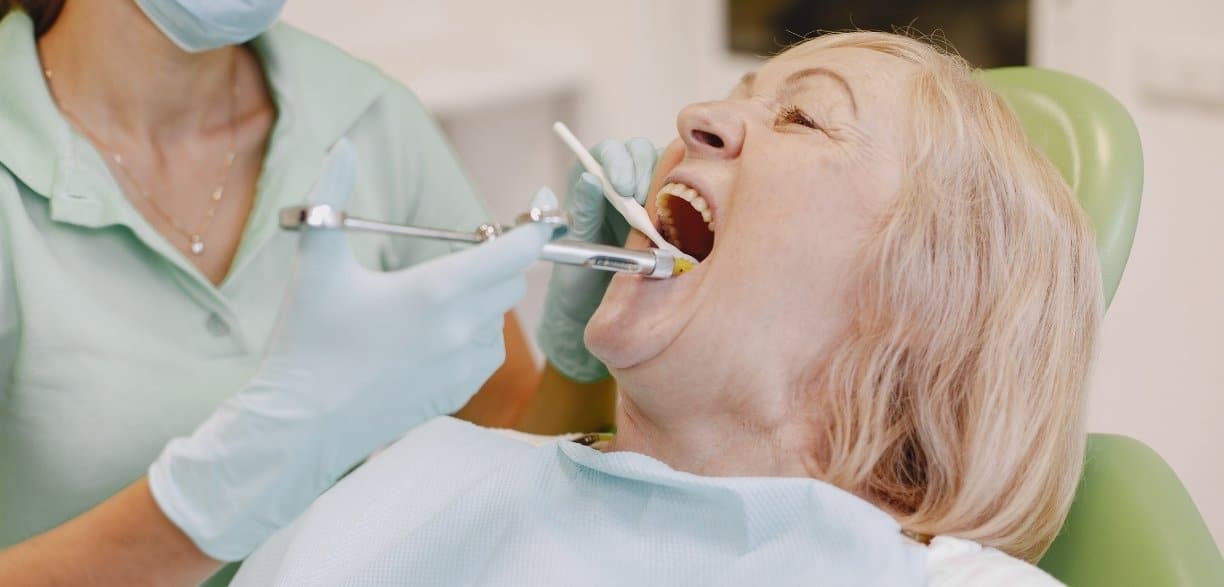
It’s no secret that dental care can be expensive. So, before rushing to the emergency room with a dental issue, it’s important to understand when it becomes an urgent problem and requires immediate attention. In this blog, we will discuss what constitutes a dental emergency and provide tips on how best to handle such situations.
Dental issues can range from mild discomfort to severe pain which requires prompt medical attention. It is always best practice to visit your dentist as soon as possible for any kind of oral health concern. However, it’s also essential to know when you should go immediately for treatment and take matters into your own hands.
Toothache
A toothache is a good example of when you should seek medical attention without delay. A severe and persistent toothache typically indicates an infection or decay in the tooth’s root, which can lead to abscesses if left untreated. If this is accompanied by fever, swollen lymph nodes, or tenderness/swelling around the affected area then it needs urgent treatment.
Swelling & Pain Around The Tooth
If there is swelling and pain around the affected tooth that rapidly increases, then immediate action should be taken as this could indicate a dental abscess which requires draining to prevent further complications like the spread of infection and bone loss.
Severe Sensitivity To Hot & Cold
If you find yourself with sudden and severe sensitivity to hot and cold food or drinks, then it’s possible that your tooth enamel has been worn away. This is an urgent issue since without treatment the underlying dentin layer of the tooth can be exposed and quickly become infected.
Continual Pain Even After Treatment
It’s not uncommon for a mild toothache to go away after taking some painkillers or using home remedies such as clove oil. However, if the pain continues even after treatment, it’s important to seek professional help as it could indicate further damage in the pulp chamber which requires root canal treatment.
Broken Tooth
A broken tooth is another instance when you should see a dentist immediately. It could be the result of an accident or significant force and can cause severe pain and infection if left untreated. The type of dental emergency will depend on how badly the tooth is cracked or chipped, whether it’s a permanent or baby tooth, and whether the pulp chamber has been damaged.
Cracked Teeth
If you have a minor crack that doesn’t seem to reach the pulp chamber then your dentist may be able to repair it with a special filling material. However, if the fracture is more serious and causes increased sensitivity then root canal therapy might be required.
Broken Crown
A broken crown is when the visible portion of the tooth snaps off. In most cases, this isn’t a cause for alarm as long as the tooth underneath is still intact. However, if there is pain or sensitivity then it’s best to visit your dentist to have it checked out and repaired.
Chipped Tooth
Chipping usually occurs on the edges of teeth and isn’t generally considered an emergency unless it’s severe enough to cause pain or sensitivity. In this case, you should seek professional dental treatment to avoid further damage and infection.
Knocked Out Tooth
Knocked-out teeth should be treated as a dental emergency and require immediate action if there is any hope of reattaching the tooth. Firstly, try to find the tooth and rinse it with warm water but do not scrub or remove any particles from the surface. If possible, insert it back into its socket without force and hold it in place for a few minutes.
Saving A Knocked-Out Tooth
If you can’t put the tooth back into its socket then store it in a cup of either milk or saliva if available. This helps protect the root from drying out until you’re able to get to a dentist who may be able to reattach it successfully.
Replacing A Knocked-Out Tooth
If the knocked-out tooth can’t be saved then it will need to be replaced. The most common way to do this is with a dental implant which uses a titanium screw to replace the root of the missing tooth and holds a prosthetic crown in place.
Dental Bridge Or Veneer
In some cases, your dentist may suggest using either a dental bridge or veneer. Both are more economical options and involve using an adjacent tooth as an anchor for supporting the replacement tooth. However, these techniques are not suitable for everyone so you should always consult your dentist first.
Knowing when a dental issue becomes an emergency is important for maintaining your oral health, especially during a time when it’s difficult to access dental care. In most instances, if a toothache persists or you experience severe pain then you should seek professional help as soon as possible. Similarly, any cracked or chipped teeth which cause sensitivity should also be checked and treated by a dentist promptly. Finally, if you have had a tooth knocked out then try to reinsert it before seeking assistance so that there may be an opportunity to save it.
A: If the sensitivity increases or lasts more than a few days then you should see your dentist who can carry out tests to determine the underlying cause and recommend suitable treatment.
A: Yes, depending on the severity of the chip your dentist may be able to repair it with special filling material or offer other treatments such as root canal therapy or a crown.
A: It generally takes between 3-6 months for the implant site to fully heal before the prosthetic crown can be attached. During this time, you should avoid eating hard foods which could damage the area, and practice good oral hygiene habits.



